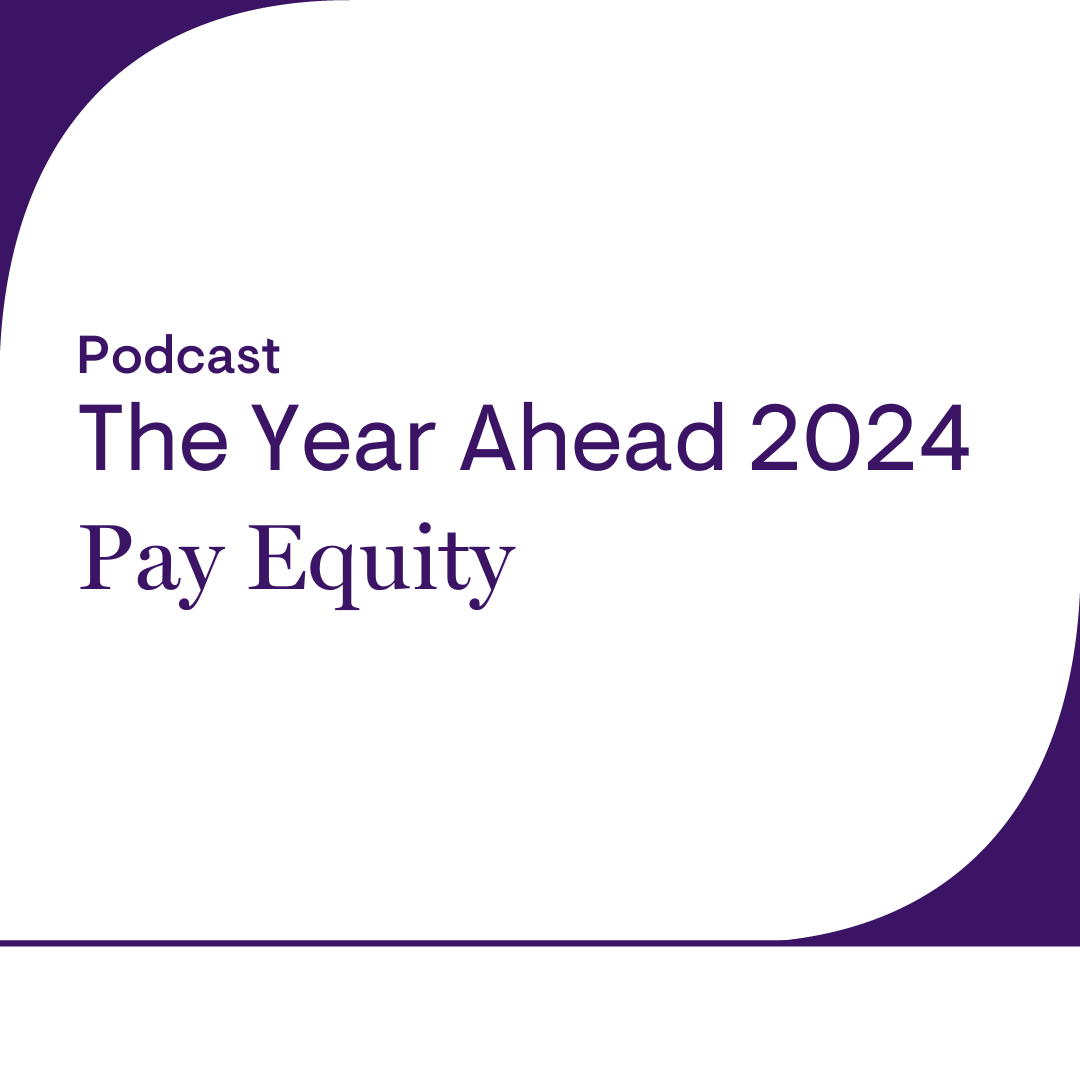Reducing salary inequities and discrimination through pay transparency and pay equity initiatives remains a challenge — and the ever-evolving and increasingly varied range of jurisdictional approaches isn’t helping.
Pay Transparency
State
- The patchwork of state laws remains ever evolving, containing various mixes of the following elements:
- Benefits in addition to salary.
- Salary info in job postings versus upon request by employee/applicant.
- Internal job movements as well as external postings.
- Annual pay data reporting to state agency.
- Washington State’s Equal Pay and Opportunity Act
- The Act’s private right of action has resulted in 50 class action suits actions and counting.
- Other state laws requiring pay disclosure in job ads include California, Colorado, New York, Hawaii (effective Jan.1, 2024), and Illinois (signed August 2023, effective Jan. 1, 2025).
- Laws are pending in numerous states, and numerous cities and counties have pay transparency laws as well (including Cincinnati, NYC).
- Laws are pending in numerous states, and numerous cities and counties have pay transparency laws as well (including Cincinnati, NYC).
Federal: Salary Transparency Act
- Introduced in the House on March 14, 2023, amending the Fair Labor Standards Act, the Act would require all U.S. employers to provide the salary range for jobs in all advertisements. The salary range would need to include wages and other forms of compensation the employer anticipates offering the successful candidate for the job opportunity.
- The Act includes civil penalties ranging from $5,000 for a first violation, increased by an additional $1,000 for each subsequent violation, not to exceed $10,000, plus liability to each job applicant for damages and reasonable attorneys’ fees.
- The bill also includes a private right of action.
Pay Equity: State Law Trends
- Colorado amended its Equal Pay for Equal Work Law to no longer require employers to provide notice to current employees of career progression promotions and amends its equal pay statute to extend the statute of limitations for wage discrimination claims and to create a process to investigate and mediate wage discrimination claims. (2023 CO SB 105)
- Hawaii enacted a law that requires employers to include a pay range in job listings and amended its equal pay statute to prohibit pay discrimination based on any protected characteristic. (2023 HI SB 1057)
- Minnesota enacted a law prohibiting employers from inquiring, considering, or requiring disclosure of a job applicant's pay history for the purpose of determining compensation or benefits for that applicant. (2023 MN S.B. 2909)
For state law trends regarding leaves, preemption, marijuana, and more, see the “Federal Litigation + State Regulatory Watch” section.
 | The Year Ahead 2024: Pay EquityThe biggest legislative movement in pay equity will continue to be transparency — especially at state and local levels. Jackson Lewis Pay Equity Resource Group co-leads Joy Chin and Drew Maunz pull together the expanding patchwork of pay equity state law trends to help employers get a better sense of the emerging standards sure to affect operations and compensation approaches. |








